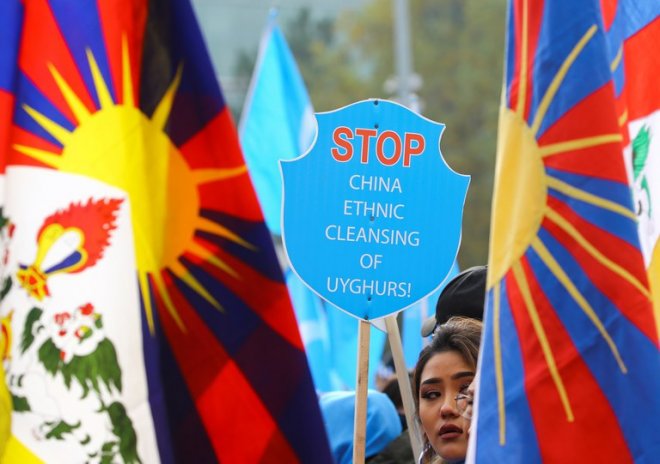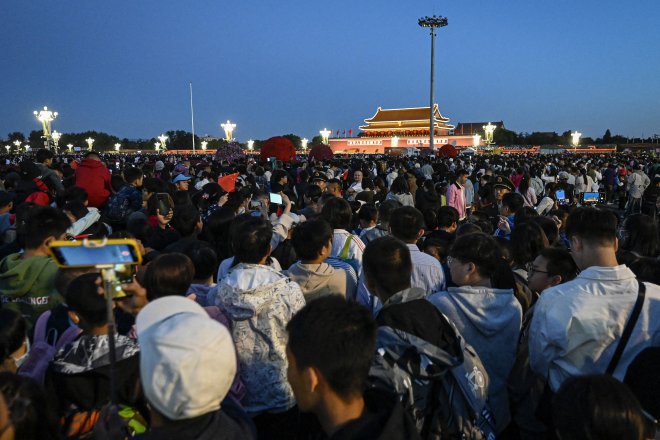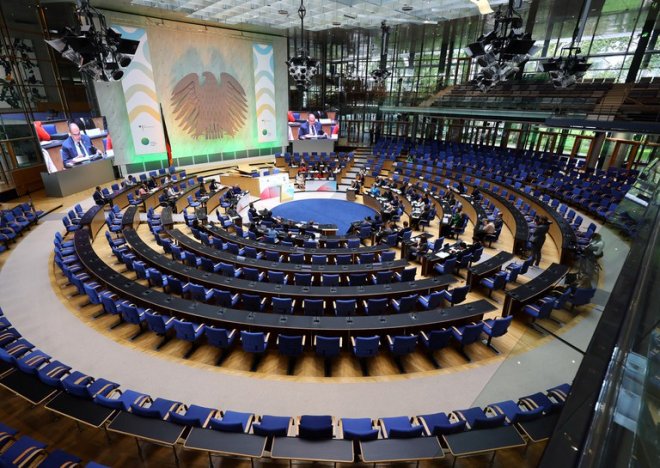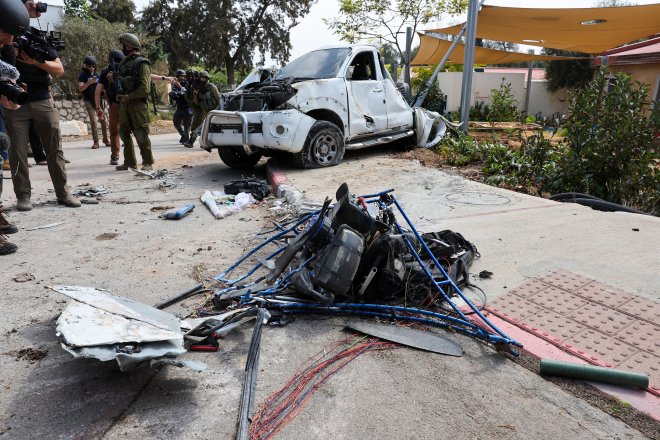Data lacking on Asia’s electricity needs, report says
Asia urgently needs to improve the transparency of its power sector data, as over half of the region’s economies lack information regarding electricity generation, a report said Thursday.
Some 24 of 39 economies in Asia have “poor” or “insufficient” power data, said the joint “Asia Data Transparency Report 2023” by Ember, a global energy think tank, and Subak, a climate non-profit.
“This means that there is little to no data about how the electricity needs of 684 million people are being met,” the report said.
The Asia-Pacific is home to 80% of global coal generation, while power sector emissions in the region make up 62% of the total worldwide. Its electricity demand is increasing by about 5% per year, a rate twice as fast as the rest of the world.
In Asia, many economies struggle to phase down coal power, as electricity demand has significantly impacted the region’s economic growth.
Decarbonizing the region’s power sector is crucial for limiting global temperature rise to 1.5 degrees, Ember’s researchers said, concluding that poor data transparency is holding back the speed of the transition to clean power in Asia.
The report said that China, despite being the largest electricity consumer in Asia and globally, only scored an “acceptable” rating due to “a lack of detailed data” and “inconsistent reporting.”
Among the top 10 power sector emitters, China led the world by three times more than the U.S., the second-biggest carbon dioxide emitter.
In a report last month, Ember said China created the most CO2 emissions of any power producer in the world in 2022, with 4,694 million metric tons of CO2, accounting for 38% of total global emissions from electricity generation.
Coal alone made up 61% of China’s electricity mix, though it was a 17 percentage points fall from 78% in 2000. However, in absolute terms, it is five times higher than at the start of this century.
![]() The report said that 24 out of 39 of economies in Asia have insufficient or poor data transparency regarding electricity generation. Credit: Ember
The report said that 24 out of 39 of economies in Asia have insufficient or poor data transparency regarding electricity generation. Credit: Ember
Among Southeast Asian countries, Brunei, Indonesia, Laos, and Vietnam scored “poor” for data transparency, while Cambodia, Malaysia, and Myanmar were rated “insufficient.”
These countries had a long time lag for annual and monthly reports, with data too difficult to analyze. The Philippines, Thailand, and Singapore performed relatively better.
Five countries with no data – Tajikistan, Turkmenistan, Afghanistan, Papua New Guinea, and New Caledonia – were more concentrated in low to lower-middle-income countries.
India, New Zealand, and Australia were found to be the best-performing countries regarding data transparency.
“Three lower-middle income countries – India, Sri Lanka, Bangladesh – scored higher than any other upper-middle income countries. They are showing that it is possible to improve data transparency and encourage others to follow suit,” Uni Lee, Ember’s Asia data analyst, said.
“Bangladesh provides daily generation data for each power plant and provides various metrics for the electricity market, including outage and day-ahead schedules through the central utility,” the report said.
The research looking into data transparency for the power sector identified 74 official data sources across Asia-Pacific. The evaluation was based on six rating criteria: publishing lag, geographical granularity, fuel breakdown, time granularity, ease of access and additional data.
Open data informs evidence-based policymaking and plays a pivotal role in decarbonizing the power sector, said the report, the first-in-kind presenting a comprehensive regional picture of the availability of power sector data in Asia.
“Ideally, power sector data must be provided at hourly or fewer intervals … and made free to access without restriction in a machine-readable format,” the report recommended.
“Data is essential for climate professionals to monitor, track and set clean power targets, as well as to develop innovative technologies for better grid flexibility and engage in evidence-based policymaking,” said Subak’s data cooperative associate, Justine White.
Edited by Mike Firn.
[圖擷取自網路,如有疑問請私訊]
Some 24 of 39 economies in Asia have “poor” or “insufficient” power data, said the joint “Asia Data Transparency Report 2023” by Ember, a global energy think tank, and Subak, a climate non-profit.
“This means that there is little to no data about how the electricity needs of 684 million people are being met,” the report said.
The Asia-Pacific is home to 80% of global coal generation, while power sector emissions in the region make up 62% of the total worldwide. Its electricity demand is increasing by about 5% per year, a rate twice as fast as the rest of the world.
In Asia, many economies struggle to phase down coal power, as electricity demand has significantly impacted the region’s economic growth.
Decarbonizing the region’s power sector is crucial for limiting global temperature rise to 1.5 degrees, Ember’s researchers said, concluding that poor data transparency is holding back the speed of the transition to clean power in Asia.
The report said that China, despite being the largest electricity consumer in Asia and globally, only scored an “acceptable” rating due to “a lack of detailed data” and “inconsistent reporting.”
Among the top 10 power sector emitters, China led the world by three times more than the U.S., the second-biggest carbon dioxide emitter.
In a report last month, Ember said China created the most CO2 emissions of any power producer in the world in 2022, with 4,694 million metric tons of CO2, accounting for 38% of total global emissions from electricity generation.
Coal alone made up 61% of China’s electricity mix, though it was a 17 percentage points fall from 78% in 2000. However, in absolute terms, it is five times higher than at the start of this century.
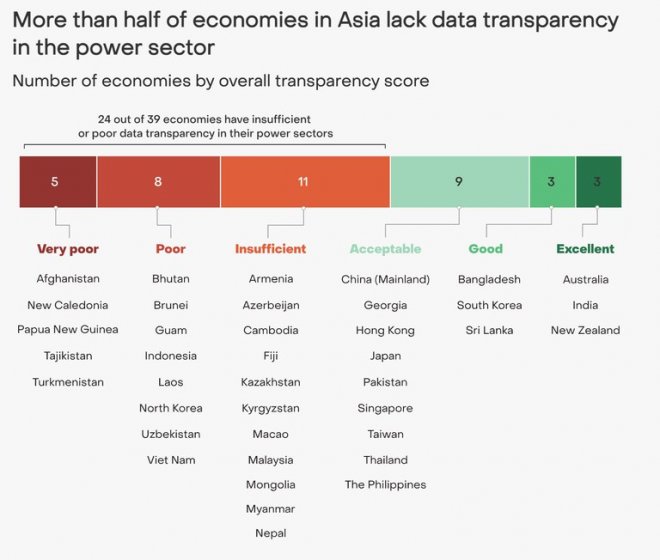 The report said that 24 out of 39 of economies in Asia have insufficient or poor data transparency regarding electricity generation. Credit: Ember
The report said that 24 out of 39 of economies in Asia have insufficient or poor data transparency regarding electricity generation. Credit: EmberAmong Southeast Asian countries, Brunei, Indonesia, Laos, and Vietnam scored “poor” for data transparency, while Cambodia, Malaysia, and Myanmar were rated “insufficient.”
These countries had a long time lag for annual and monthly reports, with data too difficult to analyze. The Philippines, Thailand, and Singapore performed relatively better.
Five countries with no data – Tajikistan, Turkmenistan, Afghanistan, Papua New Guinea, and New Caledonia – were more concentrated in low to lower-middle-income countries.
India, New Zealand, and Australia were found to be the best-performing countries regarding data transparency.
“Three lower-middle income countries – India, Sri Lanka, Bangladesh – scored higher than any other upper-middle income countries. They are showing that it is possible to improve data transparency and encourage others to follow suit,” Uni Lee, Ember’s Asia data analyst, said.
“Bangladesh provides daily generation data for each power plant and provides various metrics for the electricity market, including outage and day-ahead schedules through the central utility,” the report said.
The research looking into data transparency for the power sector identified 74 official data sources across Asia-Pacific. The evaluation was based on six rating criteria: publishing lag, geographical granularity, fuel breakdown, time granularity, ease of access and additional data.
Open data informs evidence-based policymaking and plays a pivotal role in decarbonizing the power sector, said the report, the first-in-kind presenting a comprehensive regional picture of the availability of power sector data in Asia.
“Ideally, power sector data must be provided at hourly or fewer intervals … and made free to access without restriction in a machine-readable format,” the report recommended.
“Data is essential for climate professionals to monitor, track and set clean power targets, as well as to develop innovative technologies for better grid flexibility and engage in evidence-based policymaking,” said Subak’s data cooperative associate, Justine White.
Edited by Mike Firn.
[圖擷取自網路,如有疑問請私訊]
|
本篇 |
不想錯過? 請追蹤FB專頁! |
| 喜歡這篇嗎?快分享吧! |
相關文章
AsianNewsCast








